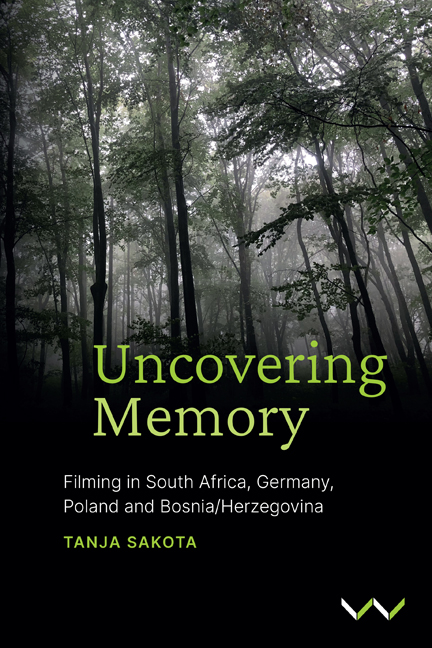Book contents
- Frontmatter
- Dedication
- Contents
- List of Images
- Foreword
- Acknowledgements
- Map of Africa and Europe
- Practice-Based Research, Teaching and Learning
- Part I Working With Students: Cape Town, Johannesburg, Berlin
- Part II Working With Peers: Constitution Hill, Johannesburg
- Part III Working With Myself: Poland, Germany, Bosnia/Herzegovina, South Africa
- Moving Forward
- Film Credits
- Glossary of Terms
- Notes
- Bibliography
- Index
Chapter 15 - Point of view: a discussion post-practice
Published online by Cambridge University Press: 24 November 2023
- Frontmatter
- Dedication
- Contents
- List of Images
- Foreword
- Acknowledgements
- Map of Africa and Europe
- Practice-Based Research, Teaching and Learning
- Part I Working With Students: Cape Town, Johannesburg, Berlin
- Part II Working With Peers: Constitution Hill, Johannesburg
- Part III Working With Myself: Poland, Germany, Bosnia/Herzegovina, South Africa
- Moving Forward
- Film Credits
- Glossary of Terms
- Notes
- Bibliography
- Index
Summary
The tour that took place at Constitution Hill falls under the umbrella of the commodification of memory. This approach is different to most of the other sites I have written about in Part I: Working with students because those sites were open spaces that did not have an entrance fee to access the site, nor did they have a guided tour. Students were able to conduct their own research about the memory of their chosen sites but I did not provide any detailed historical interpretation or tour of the sites. In the workshops held in Germany the narrative context was restricted to discussing what the sites were and what they reflected and signified. Students then had to make their own personal interpretation of the site through the films.
When working with peers I had to use a different approach because the workshop took place within such a specific and limited time frame. I incorporated the narrative of a guided tour so that I could consider:
• how it created a narrative context of the space for international and local visitors;
• if and how the participants reacted to that narrative context (in favour, against or no reaction);
• if the films created were a reaction to the tour or a reaction to the space itself; and
• did the pre-scripted narrative of the tour become part of the collective memory of the group and hence extend into the film narrative?
The guided tour definitely created a new dimension to the interaction with the memory that I had not seen in my previous workshops. Some of the participants (international and local) found the tour a constructive part of the process; others found it restrictive because it channelled a particular orientation and interpretation of the space. Having a mediated narrative about the history of the site does change the dynamic and can impose a certain reading of the space. According to one of the participants:
As we started with the ‘orientation film’ I had the impression that I reacted more to the story I was told. Beyond that I reacted instructively rather than intellectually as the topic is just beyond of what we can stand as human. Everything was for me about resisting and finding ways out of the claustrophobic space. It also made me try to construct a social space on my own by interacting with the group.
- Type
- Chapter
- Information
- Uncovering MemoryFilming in South Africa, Germany, Poland and Bosnia/Herzegovina, pp. 197 - 204Publisher: Wits University PressPrint publication year: 2023



